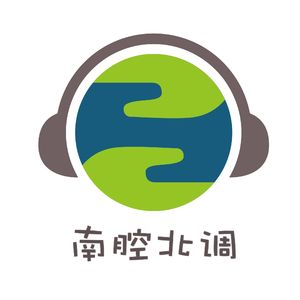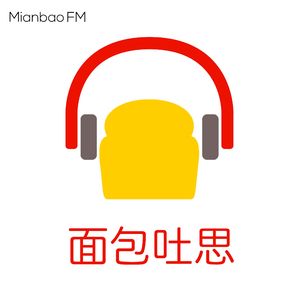Scroll down for language learning materials.
开场白文字 Opening Transcript
诶呦喂, 您吃了么?您今天儿真漂亮!咱们聊聊北京话儿呗。 新栏目南腔北调要开始了!
Welcome BreadToast Chinese, Brad here. My sincerest apologies for that painful attempt at sounding like a Beijinger. You are tuned in to episode one of yet another new series we are totally pumped about. The series is called 南腔北调.
Local language serves as the starting point and core of every episode of南腔北调, and we go from there. We don’t pretend to be experts in linguistics, but we believe that taking the time to appreciate geographic, linguistic and cultural diversity is just plain fun, and it helps us understand each other.
Today’s BGM track is ‘Pink Rose,’ from Xinjiang artist 傅老大. Check out next week’s 等我音乐 to hear us talk with 傅老大 about another one of his songs, ‘天台 (Rooftop)’.
If you haven’t figured it out yet, we’re talking about good ol’ 北京话儿 today. 南腔北调 co-host Vicky and I sat down in our virtual 北京胡同四合院 courtyard with 年轻的老北京人 Nana. As always, you’ll find all sorts of cool stuff and language learning materials in the show notes at breadtoastchinese.simplecast.com and in the articles we put out on our public WeChat account, or 微信公众号,BreadToast Chinese 面包吐思.
结语文字 Closing Transcript
感谢你收听面包吐思《南腔北调》,也感谢傅老大提供这一期的BGM,Pink Rose。大家可以上网易云搜索傅老大,随时听他的歌。下一期的《等我音乐》会跟傅老大聊聊他的另一首歌,天台。想听听我们对话的小伙伴可以在各个平台关注面包吐思。思是思考的思,别打错了!喜欢我们节目的话可以给朋友推荐,也可以随时与我们联系。Big, big thanks to special guest Nana and co-host Vicky. 拜拜!
想关注或与我们联系么?Wanna stay up to date or get in touch?
- Like us on Facebook
- Follow us on Instagram: breadtoastchinese
- 微信公众号搜索 Search for our public WeChat account :BreadToast Chinese 面包吐思
- 给我们发个邮件 Send us an email: breadtoastpodcast@outlook.com
语言学习材料 Language Learning Materials
啊,刚说啥英语单词来着?没听清!
- Gap year - 英[ˈɡæp jɪə(r)] 美[ˈɡæp jɪr] n. 空缺年(常指中学毕业后上大学前所休的一年假期,用于实习或旅游);
- Valley Girl - 英[ˈvæli ɡɜːl] 美[ˈvæli ɡɜːrl] n. 谷地富家女(只热衷于购物等,被认为是加利福尼亚州圣费尔南多谷地富家女的典型);
- Get 到了- 英[ɡet] 美[ɡet] v. 收到; 接到; 获得; 得到; (卖某物) 挣得;
- Official term - 英[əˈfɪʃl tɜːm] 美[əˈfɪʃl tɜːrm] 正式名称; 缩写词为OT;
- Pipe - 英[paɪp] 美[paɪp] n. 管子; 管道; 烟斗; 烟袋; 管乐器;
- We are a team - 英[wi ɑː(r) ə tiːm] 美[wi ɑːr ə tiːm] 我们是一个团队;
- What are you doing? - 英[wɒt ɑː(r) ju ˈduːɪŋ] 美[wɑːt ɑːr jə ˈduːɪŋ] 你在做什么; 你在干什么;
Stuff about Beijing and speaking Beijing hua 北京话
- 北京腔/北京味儿 [ běi jīng qiāng / běi jīng wèir ] – Beijing accent/Beijing flavor
- 儿化音 [ér huà yīn] – nonsyllabic final r 儿 added to a word in spoken Chinese (Hanping Chinese Dictionary)
- 语气 [ yǔ qì ] - manner of speaking; mood; tone
- 节奏感 [ jié zòu gǎn ] - rhythm
- 长音 [ cháng yīn ] - long vowel; prolonged sound
- 重音 [ zhòng yīn ] – accent; emphasized sound
- 咬字 [ yǎo zì ] - to pronounce (clearly or otherwise); to enunciate
- 胡同 [ hú tòng ] - lane; CL:条; alley. The standard in traditional Beijing neighborhoods
- 四合院 [ sì hé yuàn ] - courtyard house
- 四九城 [ sì jiǔ chéng ] - "Four nine cities" refers to the general name of the four gates of the imperial city and the nine gates of the inner city. The four gates of the imperial city are Tian'an gate天安门, Di'an gate地安门, Dong'an gate 东安门and Xi'an gate西安门, while the nine gates of the inner city are Zhengyang gate (front door) 正阳门(前门), Chongwen gate崇文门, Xuanwu Gate宣武门, Chaoyang Gate朝阳门, Fucheng gate阜成门, Dongzhimen东直门, Xizhimen西直门, Anding gate安定门 and Desheng Gate德胜门. (百度百科 Baidu Baike)
Stuff to try to say like a Beijinger (if you’re not afraid of making a fool of yourself)
- 馅饼 [ xiàn bǐng ] – meat pie. If you can get the ‘er’ down on this, you’re off to a great start.
- 下一站是前门。请大家从前门下车。[ xià yī zhàn shì qián mén. qǐng dàjiā cóng qián mén xià chē ] – The next stop is Qianmen. Everyone please alight using the front door. Which ‘men’ gets the ‘er’ and which doesn’t?
- 中央电视台 [ zhōng yāng diàn shì tái ] - China Central Television (CCTV), PRC state TV network. Slur the front end and emphasize the tail end.
- 西红柿炒鸡蛋 [xī hóng shì chǎo jī dàn] – Fried tomato and egg dish. Use as few intelligible syllables as possible.
- 姥姥 [ lǎo lao ] - (coll.) mother's mother; maternal grandmother. One syllable only. Draw this one out like it’s your job.
- 诶呦喂 [ ai you wei ] – hey! No tones on this one. Just go for it.
- 吃了么?[chī le me] – have you eaten yet? Really just a way to say “hello”
- 到家跟我妈说话 [ dào jiā gēn wǒ mā shuō huà ] – “Get home and talk to my mom.” The easier of our two sentences we tried to say like a Beijinger.
- 地名 [ dì míng ] - place name; toponym. See if you can add the ‘er’ without it sounding forced.
- 今天我跟我姥姥一块儿去大栅栏 [ jīntiān wǒ gēn wǒ lǎolao yīkuàir qù dà zhàlán ] – “Today, I went to Da Zha Lan with my grandma.” Send us a recording of you saying this sentence like a true Beijinger and we’ll send you a piping hot 馅饼via canal barge and steamship as your prize.
- 您 [ nín ] - you (courteous, as opposed to informal 你). None of that uncouth 你 business when talking to a stranger in Beijing!
Idioms/Proverbs
- 地地道道 [ dì dì dào dào ] – outright/authentic. 真正的;纯粹的;实实在在的;负责任的。
- 字正腔圆 [ zì zhèng qiāng yuán ] - (of singing or speaking) very articulate pronunciation and vocalizing. (说或唱)字音准确,腔调圆润(多用于戏曲或曲艺):他的念白、唱腔都~,表演得声情并茂。
- 自然而然 [ zì rán ér rán ] - involuntary; automatically. 不经外力作用而如此:我们长期在一起工作,~地建立了深厚的友谊。
- 约定俗成 [ yuē dìng sú chéng ] - established by popular usage (idiom); common usage agreement; customary convention. 指某种事物的名称或社会习惯,经过长期的社会实践而被公认,并为大家遵守和沿用。《荀子·正名》:“名无固宜,约之以命,约定俗成谓之宜,异于约则谓之不宜。”
Extra Vocabulary to look up and listen for (if that’s your thing).
- 媒体推广
- 区分
- 刻意
- 尴尬
- 毕竟
- 含糊
- 表演性质
- 精髓
- 赞同
- 不至于
- 语境
- 段子
- 正经教育
- 黏糊
- 正宗
- 撒娇
- 亲和力
- 习俗
- 句尾
- 指环王/霍比特人
- 皮影戏
- 成
- 挑战精神
- 讲究
- 清朝
- 满语
- 语言天分
- 极力
- 独生子女
- 褒义和贬义
- 充实
Pinyin, translations and definitions come from Baidu unless otherwise noted in parenthesis.
_
We recommend checking out Wordy Klay's Joker Studio YouTube Channel for much much more on 北京话。 He's got tons of amazing content.
_
Is this stuff helpful? What else would you like to see here? Got any questions, comments or complaints? Send us an email: breadtoastpodcast@outlook.com



 50
50 0
0